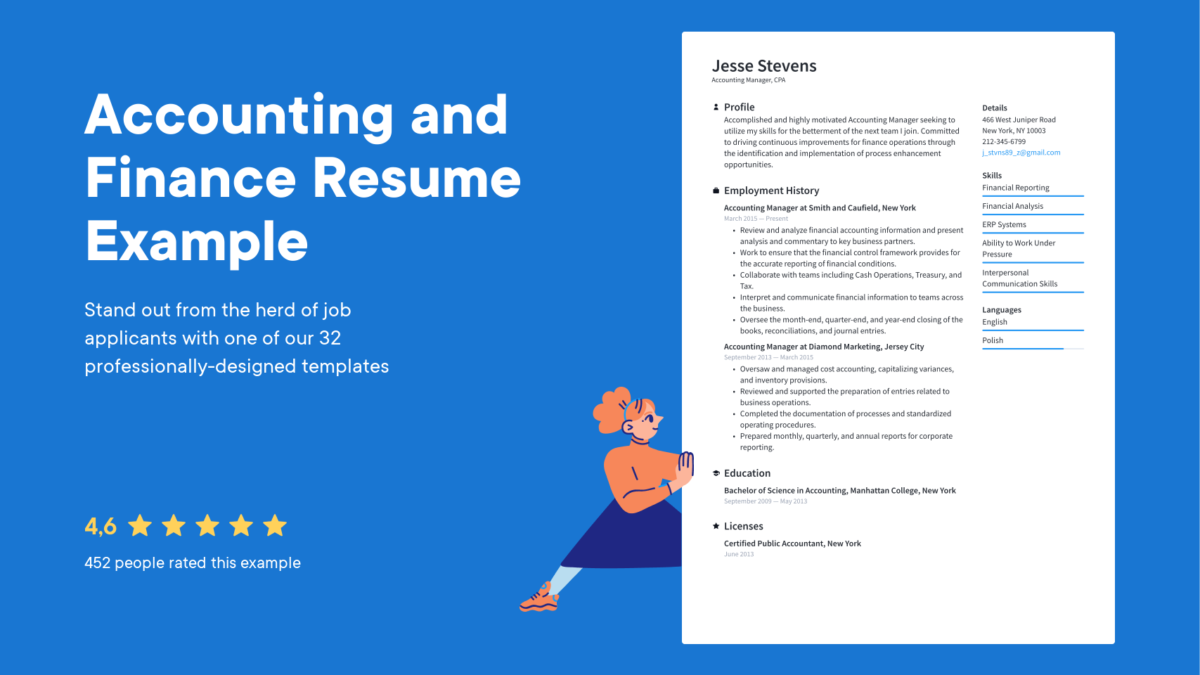The Finance Resume industry is one of the most competitive and dynamic fields, requiring professionals to demonstrate a unique blend of analytical skills, technical expertise, and strategic thinking. Whether you are a recent graduate aspiring to land your first finance role or a seasoned professional looking to climb the corporate ladder, your finance resume plays a critical role in showcasing your qualifications and securing interviews. This article provides actionable tips, proven strategies, and practical insights to help you craft a standout finance resume that captures the attention of hiring managers and recruiters.
Understanding the Importance of a Well-Written Finance Resume
A finance resume is more than just a document that lists your education and work history—it is a marketing tool that highlights your value as a finance professional. Recruiters and hiring managers in the finance industry often spend less than 10 seconds scanning a resume. This means that your resume must be concise, visually appealing, and packed with relevant information.
A strong finance resume not only demonstrates your technical skills, such as financial analysis, accounting, and risk management, but it also conveys your ability to contribute to the company’s bottom line. With the finance sector evolving rapidly due to advancements in technology and shifts in economic trends, having a polished and up-to-date finance resume is essential for staying competitive in the job market.
Key Components of a Strong Finance Resume
To create a standout finance resume, you need to structure it effectively and include specific sections that appeal to recruiters. Below are the key components every finance resume should feature:
1. Contact Information
Your contact information should be prominently displayed at the top of your finance resume. Include your full name, phone number, email address, and LinkedIn profile. If you have a professional website or online portfolio, consider including a link to showcase additional accomplishments.
2. Professional Summary or Objective
A professional summary or career objective provides a snapshot of who you are as a finance professional and what you bring to the table. For experienced professionals, a summary works best to highlight key achievements and skills. For entry-level candidates, a career objective can communicate your enthusiasm and goals in the finance industry.
Example for a professional summary: “Results-driven finance professional with 7+ years of experience in financial planning, investment analysis, and risk management. Proven track record of optimizing financial processes and delivering actionable insights to drive profitability and growth.”
3. Skills Section
The finance industry demands a variety of technical and soft skills. Your finance resume should include a skills section that highlights your core competencies. Some valuable skills to include are:
- Financial modeling and analysis
- Budgeting and forecasting
- Investment strategies
- Risk assessment and management
- Proficiency in financial software (e.g., Excel, Bloomberg, QuickBooks)
- Communication and presentation skills
4. Work Experience
The work experience section is the heart of your finance resume. Use reverse-chronological order to list your professional roles, starting with your most recent position. For each role, include the following:
- Job title
- Company name and location
- Employment dates
- Bullet points describing your key responsibilities and accomplishments
Quantify your achievements with metrics whenever possible to demonstrate your impact. For example:
- “Increased portfolio returns by 15% through strategic investment decisions.”
- “Reduced operating costs by 20% by streamlining financial reporting processes.”
5. Education
In the finance field, education plays a significant role. Include your academic qualifications, starting with the highest degree earned. Mention the institution’s name, degree type, and graduation year. If you’re a recent graduate, consider listing relevant coursework or academic honors.
6. Certifications and Professional Development
Certifications like CFA (Chartered Financial Analyst), CPA (Certified Public Accountant), or FRM (Financial Risk Manager) can set your finances apart. Highlight these credentials prominently, as they demonstrate your expertise and commitment to professional growth.
7. Additional Sections
Depending on your background, consider including additional sections such as:
- Volunteer experience in financial organizations
- Languages (especially if applying for global finance roles)
- Publications or presentations related to finance
- Awards or honors in the field
Tips for Optimizing Your Finance Resume
1. Tailor Your Finance Resume to the Job
Every finance job is unique, so customizing your finance for each application is crucial. Carefully review the job description and align your resume with the required skills, qualifications, and responsibilities.
For instance, if the job emphasizes financial modeling, ensure that your finance resume highlights your experience with modeling tools and techniques. Tailoring your resume increases your chances of passing applicant tracking systems (ATS) and catching the recruiter’s eye.
2. Use Action-Oriented Language
Start your bullet points with strong action verbs, such as “analyzed,” “developed,” “implemented,” or “optimized.” This language conveys a proactive approach and demonstrates your ability to deliver results.
3. Focus on Achievements, Not Just Duties
While it’s important to describe your job responsibilities, the most impactful finance resumes emphasize achievements. Recruiters want to see the measurable results you’ve achieved in previous roles. For example:
- Weak: “Prepared financial reports for clients.”
- Strong: “Prepared detailed financial reports that increased client satisfaction by 30%.”
4. Keep It Concise and Well-Formatted
A finance resume should be no longer than one page for early-career professionals and two pages for experienced candidates. Use clear headings, bullet points, and white space to make your resume easy to read.
5. Proofread Thoroughly
The finance industry values precision, so even minor errors on your finance resume can hurt your credibility. Review your resume multiple times to eliminate typos, grammatical mistakes, and formatting inconsistencies.
Finance Resume Examples for Different Career Stages
To inspire your efforts, here are examples of how a finance resume might look for various stages of a career:
Entry-Level Finance Resume Example
For recent graduates, emphasize education, internships, and transferable skills. Include any relevant coursework, such as financial accounting or investment principles.
Mid-Career Finance Resume Example
For professionals with a few years of experience, focus on your accomplishments in previous roles. Highlight how you’ve contributed to financial decision-making, improved processes, or driven profitability.
Executive Finance Resume Example
For senior-level professionals, emphasize leadership experience, strategic achievements, and high-level impact. Use a professional summary to showcase your extensive expertise in areas such as mergers and acquisitions or corporate finance strategy.
Common Mistakes to Avoid on a Finance Resume
When crafting your finance resume, avoid the following pitfalls:
- Overloading the Resume with Jargon: While technical knowledge is important, avoid overusing industry-specific terms that may confuse non-specialist recruiters.
- Failing to Quantify Achievements: Numbers speak louder than words in the finance industry—use metrics to demonstrate your success.
- Including Irrelevant Information: Stick to finance-related experiences and skills; unrelated jobs or hobbies can distract from your qualifications.
- Using a Generic Resume for All Applications: Failing to tailor your finance resume to specific job postings reduces your chances of standing out.
Conclusion: Your Finance Resume as a Career Catalyst
Your It is your gateway to career opportunities in one of the most sought-after industries. By presenting your skills, accomplishments, and experiences in a clear and compelling manner, you can position yourself as a top candidate for finance roles. Remember to tailor your resume for each job, focus on achievements over responsibilities, and maintain a polished, professional format.
Investing time and effort into crafting an exceptional finance resume can pay significant dividends, helping you stand out in a competitive job market and move closer to achieving your career goals. Start building or revamping your finance resume today to open the door to your next opportunity in the dynamic world of finance!



